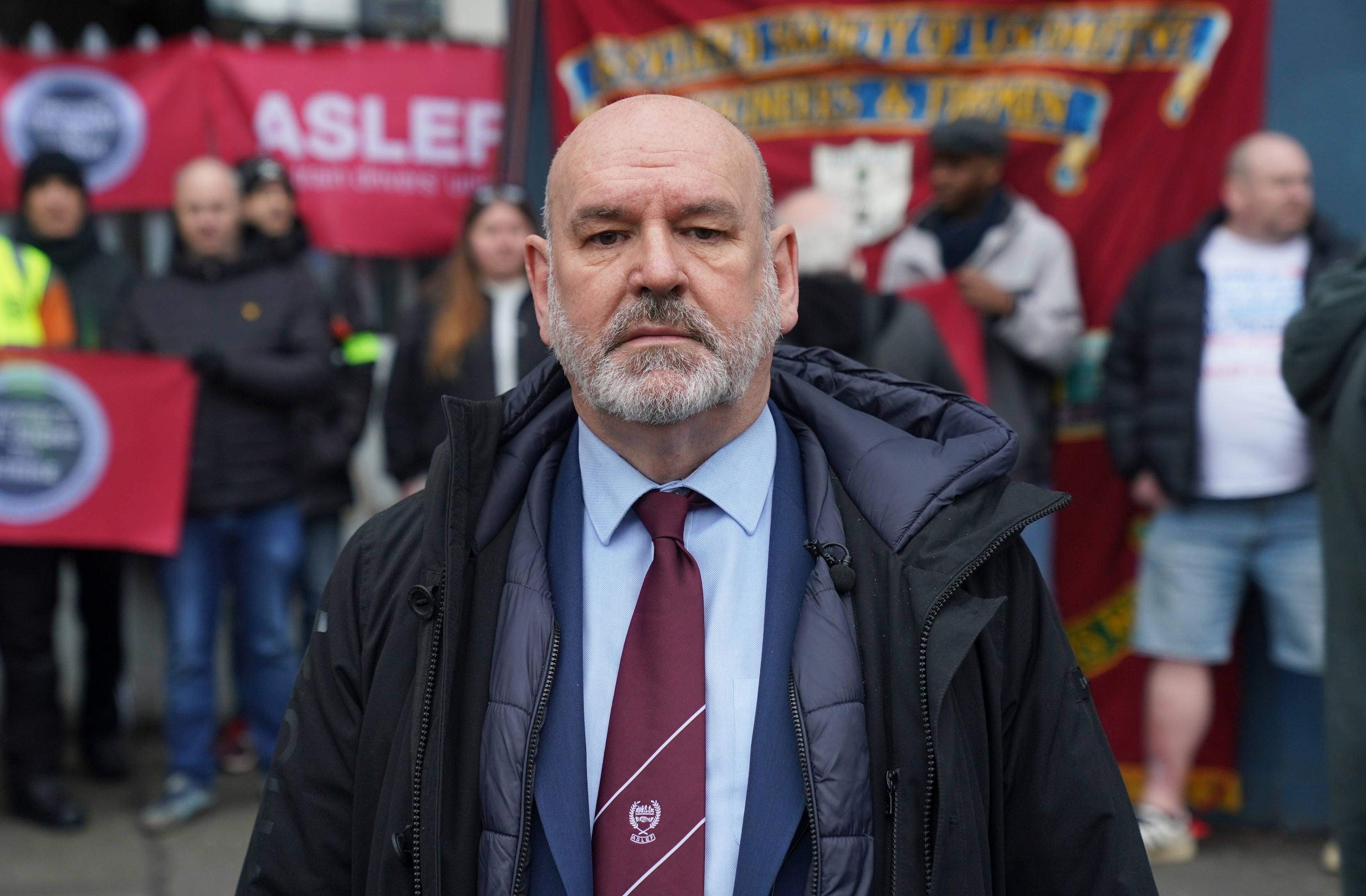Train strikes: Drivers could make fresh pay demands six months after latest offer, says Aslef chief
Aslef chief confident train drivers will accept a new pay deal but warned it still represents a ‘pay cut’
Your support helps us to tell the story
From reproductive rights to climate change to Big Tech, The Independent is on the ground when the story is developing. Whether it's investigating the financials of Elon Musk's pro-Trump PAC or producing our latest documentary, 'The A Word', which shines a light on the American women fighting for reproductive rights, we know how important it is to parse out the facts from the messaging.
At such a critical moment in US history, we need reporters on the ground. Your donation allows us to keep sending journalists to speak to both sides of the story.
The Independent is trusted by Americans across the entire political spectrum. And unlike many other quality news outlets, we choose not to lock Americans out of our reporting and analysis with paywalls. We believe quality journalism should be available to everyone, paid for by those who can afford it.
Your support makes all the difference.The train drivers’ union could return to the negotiating table to demand further pay hikes in as little as six months after Labour made a pay offer in a bid to head off strikes.
Mick Whelan, Aslef’s general secretary, said he believes train drivers will back the new deal, potentially ending years of strikes.
But he suggested the union could return to the negotiating table in just six months.
Asked on LBC whether train drivers will accept Labour’s pay deal, Mr Wheelan said: “I believe this will go through.”
But pressed on how long the offer would be satisfactory or when the union would return for more cash, he said: “We won’t go back to the table with anybody for at least six to eight months.”

The settlement due to be voted on by Aslef members includes three pay increases covering pay awards between 2019 and 2025.
For the average train driver, this would raise salaries from £60,000 to £69,000, with an immediate payment of £6,000 in backdated wages.
The union chief claimed the deal comes after years of what he described as “utter contempt” from privatised train companies and the previous Conservative government.
Mr Whelan credited the Labour government with engaging in meaningful negotiations, adding: “We finally have a new government that listens and wants to make the railway work for staff, passengers, and the taxpayer.”
Despite the steps, he said the deal does not cover the broader cost-of-living crisis that plagued workers over the last five years.
He said while the current agreement addresses past grievances, concerns about pay and conditions remain unresolved.
The dispute began in July 2021 involving 14 major English rail firms controlled by the Department for Transport (DfT) including South Western Railway, Govia Thameslink, Avanti West Coast, and others.
Since the pandemic, rail revenue has plummeted with taxpayers subsidising the industry. The Tories linked any pay increases to reforms in working practices.
Labour’s transport secretary, Louise Haigh, welcomed the potential breakthrough, adding: “When I took this job, I said I wanted to move fast and fix things – starting by bringing an end to rail strikes.
“The Conservatives were happy to see the taxpayer pay the price as strikes dragged on and on, and passengers suffered. This Labour government is doing the right thing and putting passengers first.”
The Conservatives accused Labour of having “just caved to the unions”.
“A ‘no strings’ deal means this will be paid for by passengers and taxpayers,” shadow transport secretary Helen Whately said.
“Ditching working practice reforms leaves a hole in the finances that can only be filled by higher fares or higher taxes.”




Join our commenting forum
Join thought-provoking conversations, follow other Independent readers and see their replies
Comments